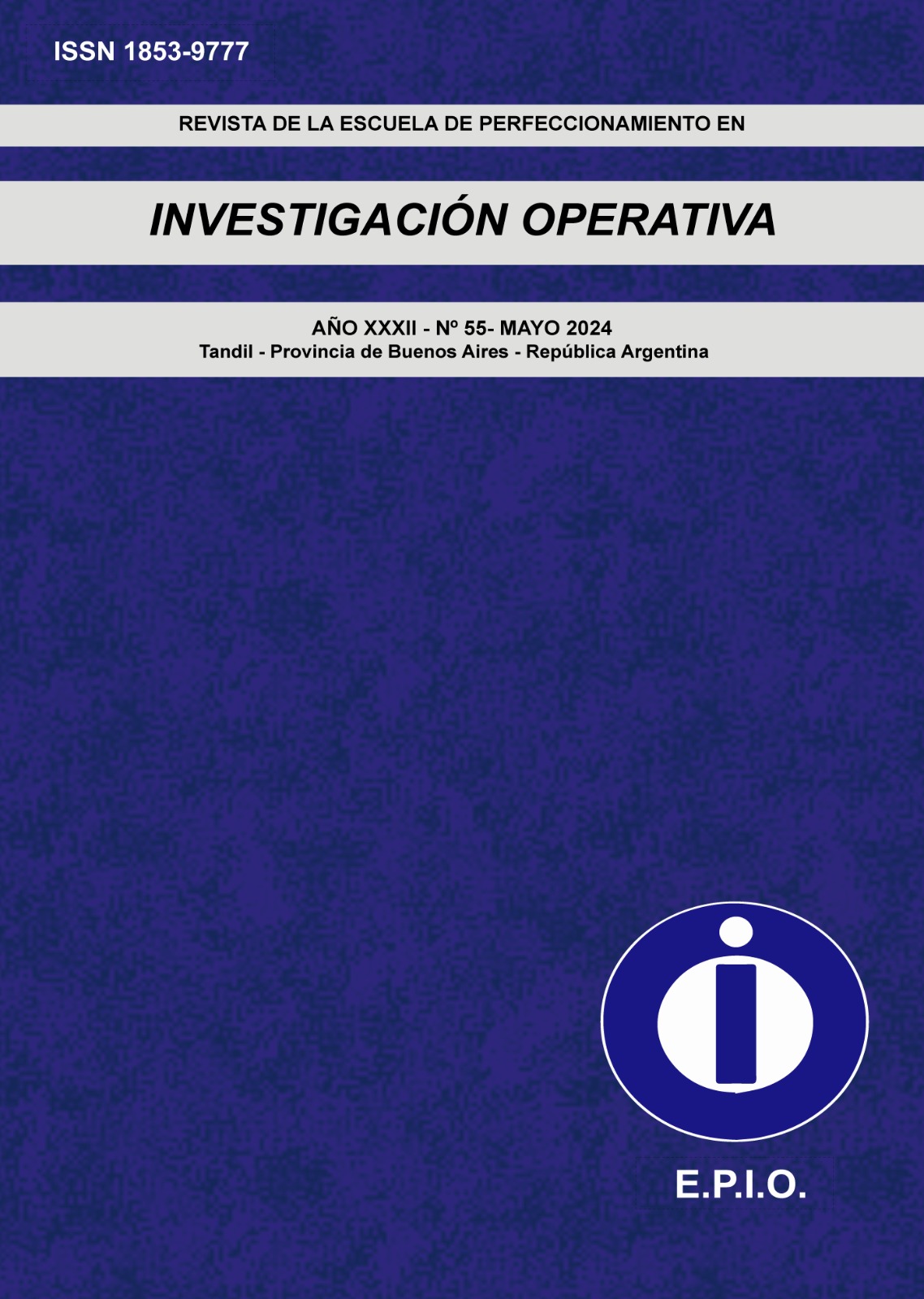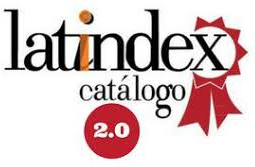Intervenção sistêmica estruturada numa empresa do setor aeronáutico
Keywords:
Organisational behaviour, Business management, Systemic intervention, Systemic thinking, Complex problemsAbstract
The main objective of this research work is to present and detail the application of a systemic intervention method in a medium-sized company in the aeronautical sector to outline actions to address complex problems. It is a hybrid approach obtained from the synergy of foundations and methods of systemic and business management epistemologies, which aims to explore three aspects: team training for systemic intervention, structured dialogue between stakeholders and active leadership. The proposed method is structured in stages and steps, supported by pillars and critical heuristics to deepen the analysis of the problem situation. As a result, from the perspective of the problem, the proposal of viable actions was obtained and, from the strategic point of view, growth, and perceived learning regarding critical and systemic sensitivity on the part of those involved. The structured and systematic realisation of dialogues for exploration and mutual understanding of the problem situation proved to be efficient in promoting a more cordial and tolerant work environment, as well as it was observed that a process of awareness and metacognitive growth of people in critical-systemic thinking was initiated, leading to an increase in the organisation's capacity to solve complex problems. It is hoped that the method can be successfully replicated in other companies.
Downloads
References
Alves, E. A. C. (2015, agosto). O PDCA como ferramenta de gestão da rotina. Anais do Congresso Nacional de Excelência em Gestão – CONEG, Rio de Janeiro, RJ, Brasil, 11.
Barros-Castro, R. A., Midgley, G., & Pinzón, L. (2015). Systemic intervention for computer-supported collaborative learning. Systems Research and Behavioral Science, 32(1), 86-105.
Cabrera, D. (2004). Distinctions, systems, relationships, perspectives: The simple rules of complex conceptual systems. Fellow Cornell University, Research Associate, Santa Fe Institute. Recuperado em 23 de agosto, 2020, de https://www.researchgate.net/publication/283046472
Cabrera, D., & Cabrera, L. (2019). Complexity and systems thinking models in education: Applications for leaders. Springer Nature Switzerland. J. M. Spector et al. (eds.), Learning, Design, and Technology. https://www.researchgate.net/publication/335238565. Recuperado em 23 de agosto, 2020.
Cabrera, D., Cabrera, L., Powers, E., Solin, J., & Kushner, J. (2018). Applying systems thinking models of organizational design and change in community operational research. European Journal of Operational Research, 268(3), 932-945.
Checkland, P. B. (1981). Systems thinking, systems practice. Chichester: John Wiley & Sons.
Checkland, P. B., & Scholes, J. (1990). Soft systems methodology in action. Chichester: John Wiley & Sons.
Córdoba, J. R., & Midgley, G. (2008). Beyond organizational agendas: Using boundary critique to facilitate the inclusion of societal concerns in information systems planning. European Journal of Information Systems, 17, 125-142.
Imai, M. (1994). Kaizen: A estratégia para o sucesso competitivo. São Paulo: Iman.
Keeney, R. L. (1992). Value-focused thinking: A path to creative decision-making. Cambridge: Harvard University Press.
Keeney, R. L. (1996). Value-focused thinking: Identifying decision opportunities and creating alternatives. European Journal of Operational Research, 92(3), 537-549.
Keeney, R. L. (2012). Value-focused brainstorming. Decision Analysis: Informs, 9(4), 306-313.
Martinelli, D. P. (2010). Negociação empresarial: Enfoque sistêmico e visão estratégica. (2a ed.). São Paulo: Manole.
Martinelli, F. B. (2009). Gestão da qualidade total. São Paulo: Fundação Biblioteca Nacional.
Maximiano, A. C. A. (2005). Teoria geral da administração: Da revolução urbana à revolução digital. São Paulo: Atlas.
Midgley, G. (1997). Developing the methodology of TSI: From the oblique use of methods to creative design. Systems Practice, 10(3), 305-319.
Midgley, G. (2000). Systemic intervention: Philosophy, methodology, and practice. New York: Kluwer/Plenum.
Midgley, G.; Munlo, I., & Brown, M. (1998). The theory and practice of boundary critique: Developing housing services for older people. Journal of the Operational Research Society, 49(5), 467-478.
Midgley, G., & Pinzón, L. (2011). The implications of boundary critique for conflict prevention. Journal of the Operational Research Society, 62, 1543-1554.
Midgley, G., & Shen, C. Y. (2007). Toward a buddhist systems methodology 2: An exploratory, questioning approach. Systemic Practice and Action Research, 20(3), 195-210.
Mingers, J. C., & Rosenhead, J. (2004). Problem structuring methods in action. European Journal of Operational Research, 152, 530-554.
Osborn, A. F. (1953). Applied imagination: Principles and procedures of creative thinking. New York: Scribner, Cornell University.
Paiva, M. L. U. G., & Daher, S. F. G. (2016, setembro). Abordagem VFT para estruturação de problema para melhoria da produção mais limpa em empresa de confecções do agreste pernambucano. Anais do Simpósio Brasileiro de Pesquisa Operacional – SBPO, Vitória, ES, Brasil, 48.
Rosenhead, J., & Mingers, J. (2001). Rational analysis for a problematic world revisited. Chichester: John Wiley & Sons.
Sydelko, P., Midgely, G., & Espinosa, A. (2021). Designing interagency responses to wicked problems: Creating a common, cross-agency understanding. European Journal of Operational Research, 294(1), 250-263.
Ulrich, W. (1983). Critical heuristics of social planning: A new approach to practical philosophy. Berne: Haupt.
Ulrich, W. (1986). Critical heuristics of social systems design. Hull: Working Paper, (10), Department of Management Systems and Sciences, University of Hull.
Ulrich, W. (1996). A primer to critical systems heuristics for action researchers. Hull: Centre for Systems Studies, University of Hull.
Werkema, M. C. C. (2002). Criando a cultura seis sigma. Rio de Janeiro: Qualitymark.
Womack, J. P., Jones, D. T., & Ross, D. (1990). A máquina que mudou o mundo. Rio de Janeiro: Campus.
Womack, J. P., & Jones, D. T.(1996). Lean thinking: Banish waste and create wealth in your corporation. London: Touchstone Books.
Downloads
Published
Issue
Section
License

This work is licensed under a Creative Commons Attribution-NonCommercial-ShareAlike 4.0 International License.
Atribución — Usted debe dar crédito de manera adecuada, brindar un enlace a la licencia, e indicar si se han realizado cambios. Puede hacerlo en cualquier forma razonable, pero no de forma tal que sugiera que usted o su uso tienen el apoyo de la licenciante.
NoComercial — Usted no puede hacer uso del material con propósitos comerciales.
CompartirIgual — Si remezcla, transforma o crea a partir del material, debe distribuir su contribución bajo la misma licencia del original.







